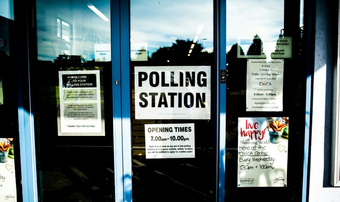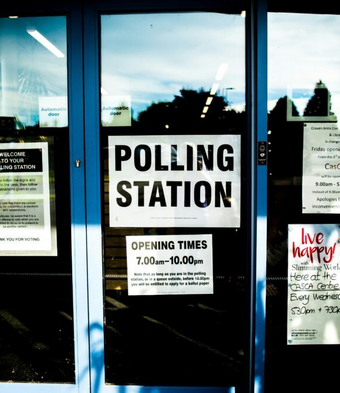Learning from the grooming gangs scandal

Warning: This article contains descriptions of sexual abuse and covers sensitive themes. It may not be suitable for some of our younger readers. Please read with caution.
The headlines show no sign of abating. For the last few days the news has been dominated by the calls for a national enquiry into the grooming gangs scandal which occurred in Rotherham, Telford and other locations.
The scandal is, I think, up there with the worst I have read. It centres around a truly horrendous story, in which thousands of young white girls were sadistically raped by Muslim men, only for the evidence to have been covered up and not properly investigated at the time by the authorities, for fear of causing offence and to avoid accusations of racism.
The calls for a national enquiry, which have been resisted so far by the Labour Government, gained traction after a spate of social media posts from Elon Musk, the owner of X (and incoming leader of the Department of Government Efficiency advisory board in the Trump administration), who has posted more than 200 times about the subject since New Year’s Day.
His posts have been forthright in the extreme (and that’s putting it diplomatically…), suggesting that the King should call for a General Election, that Keir Starmer belongs in prison, and that the Government minister for safeguarding, Jess Phillips, is a “rape genocide apologist” for resisting the call for an enquiry, prompting Ms Phillips to say that she felt “endangered” as a result.
The calls for an enquiry - as opposed to Mr Musk’s wider opinions - have found support from both the Conservative Party and from the Reform Party. It would only be fair to say that the Conservatives did not hold such an enquiry during their fourteen years in government, and that neither party spoke about the issue in their election manifesto just a few months ago.
This has been one of the most tricky topics I think I’ve had to think about during my time at CARE. There are so many controversial issues at play - immigration, free speech, foreign interference, the far-right, Islam, and multiculturalism - that it really is difficult to know where to start. And that’s before even considering the polarisation and tone being used in this discussion; is one really able to support Elon Musk when he uses such abrasive, and, I would argue, dangerous language?
I hope that the following reflections will be helpful as you attempt to navigate a way through the quagmire of claims and counterclaims on this topic and develop your own thoughts.
1. Evil must always be held to account
I have had some awareness of the grooming gangs situation for some years; after all, awareness was first raised in a national newspaper by The Times all the way back in 2011. But I had not realised the scale, or the widespread nature of the depravity involved.
In recent months, I have written in this column about sexual abuse both inside and outside the church, including about Mohamed Al-Fayed and John Smyth. What I wrote then still stands today, about the importance of lament, the validity of anger, and the importance of every single victim to God, who sees every injustice that is committed.
But some of the stories I read in preparation for this article are, to be quite frank, the most depraved, barbaric and sadistic I have ever read about in modern Britain.
One girl had repeatedly reported rape, abuse and coercion to the authorities by the age of 14. Instead of these being acted upon, she was forced to marry her abuser in a traditional Islamic wedding, which was attended by her social worker.
Another, Lucy Lowe, was raped and gave birth to a child at age 14. She was killed at age 16, while pregnant again, alongside her mother and sister when her abuser set her home on fire.
The 2014 Jay Inquiry into Rotherham found that children were “doused in petrol and threatened with being set alight”, they were “threatened with guns”, and they “witnessed brutally violent rapes and were threatened that they would be the next victim if they told anyone. Girls as young as 11 were raped by large numbers of male perpetrators, one after the other”.
These are far from the worst stories I came across. I will not repeat the worst of them here, which in some cases contain descriptions of torture.
The perpetrators of such violations will one day stand before their Maker, and they will tremble.
Jesus said, “If anyone causes one of these little ones—those who believe in me—to stumble, it would be better for them to have a large millstone hung around their neck and to be drowned in the depths of the sea.”
But so will all those who covered this up.
The prayer of General Confession, which the Church of England uses, says, “We have left undone those things which we ought to have done; And we have done those things which we ought not to have done.” Evil does not always mean actions; sometimes it works through inaction.
There are many reasons why wrongdoing can be covered up. In this case, it was because of fears around the backlash from the Pakistani community.
A local enquiry into grooming crimes committed in Telford found: “there was a nervousness [among the police] about race… bordering on a reluctance to investigate crimes committed by what was described as the ‘Asian’ community.” A senior police officer in Rotherham said of the abuse, “with it being Asians, we can’t afford for this to be coming out.”
And it certainly wasn’t just the police. Louise Casey’s 2015 report into Rotherham Council spoke of “a sense that it was the Pakistani heritage Councillors who alone ‘dealt’ with that community”, and said they had “disproportionate influence” on the council. One witness said, “[my] experience of council as it was and is – Asian men are very powerful, and the white British are very mindful of racism and frightened of racism allegations so there is no robust challenge.”
The Labour MP for Rochdale, Simon Danczuk, who championed victims and brought forward whistleblowers, said that “senior Labour politicians” told him not to mention “the ethnicity of the perpetrators, for fear of losing votes”.
To clarify, I am certainly not suggesting (unlike Elon Musk) that there is anything necessarily untoward about Labour’s current reticence to commission a national enquiry; Jess Phillips, who has long been a champion on behalf of women and girls who have experienced sexual violence, has said that the reason she does not want a national inquiry is that she thinks a local enquiry will be more effective.
But all those who knew information, and did not act to protect vulnerable young girls, and sacrificed them on the altar of ‘diversity’ and ‘multiculturalism’, are guilty, and must be held to account, by whatever means.
2. We need both truth and grace
We are going to have some difficult conversations as a nation, particularly around multiculturalism.
Indeed, if we’d been willing to have those conversations in Rotherham and Rochdale a decade ago, perhaps we wouldn’t be in the position we are in now.
Now, sexual violence is absolutely not restricted in the UK to Muslim grooming gangs; in the week before Christmas, the verdict was given on the case of Gisele Pelicot in France, whose husband drugged her and raped her repeatedly, and invited dozens of other men to do the same. Evil can be found in all communities.
And Islam is not one homogenous block, either. Just as the Church is made up of many factions, similarly, within the UK, there are strict Muslims and liberal Muslims, Sunnis and Shias, Pakistanis, Bangladeshis and Africans; tarring everyone with the same brush is not only unfair, it is racist and wrong.
But when statistics are as extreme as they have been in the grooming gang case - which was predominantly among Pakistani Muslims - uncomfortable questions do have to be asked. One recent study showed that between 1997 and 2017, in Rotherham, 1 in 73 Muslim men were prosecuted.
Kemi Badenoch has said before that, in her view, “not all cultures are equal.” In truth, I find it difficult to disagree with that: of course, all cultures have their blind spots, but I have no shame at all in preferring a worldview which believes in the inherent dignity of every man and woman, made ‘in the image of God’, to one which views women as second-class citizens. It should not be illegitimate to have this discussion.
And we have to speak with both grace and truth, as Jesus himself did.
It is here where I find the interventions of Elon Musk exceptionally unhelpful. Notwithstanding his utter lack of understanding of the UK - which has meant him championing the far-right hooligan (and convicted criminal) Tommy Robinson - to suggest that Keir Starmer should be in prison, and that he is himself responsible for the grooming scandal, is based on neither grace nor truth.
By all accounts, Keir Starmer was the first Director of Public Prosections at the CPS to prosecute those involved in the grooming gangs, and tightened laws around sexual violence. And for Mr Musk to call Jess Phillips a “rape genocide apologist” is utterly irresponsible, particularly within a UK-context that has seen a Member of Parliament murdered by a member of the far-right in the last decade.
For Christians, the ends do not - and cannot - justify the means. Rather than being called to be successful in all we do, we are first and foremost, called to be Christ-like.
Yes, Elon Musk might have brought the grooming gangs scandal back into the national conversation. But no, that does not make the way he is speaking about it okay.
We want to speak with humility, listening to our opponents, and showing genuine compassion and grace. Keir Starmer himself did not help matters this week, by saying that those who were calling for a national enquiry were “amplifying what the far-right is saying” (only for some of the victims themselves to say they wanted such an enquiry).
I don’t know whether or not a national enquiry would be the most effective way of bringing justice in this case or not. But to demonise those who disagree with you is not showing grace either.
3. We need to follow the way of the Cross
In truth - and this may sound like a visceral reaction - when I read stories like those of the grooming gangs, I think how grateful I am that I believe in a God who brings judgement. And He is a God who, unlike the soft, fluffy utopian visions of liberals, is not a universalist god, but one who is willing to punish evil in full, in hell.
Justice will one day be done. And that is a good thing.
And yet I also found myself, today, reading another story from Rotherham. It was another story which left me shocked; but it was for a different reason.
It was the story of a Christian, Dr Ella Hill, who was interviewed by Premier Christianity back in 2017. She experienced being beaten, strangled, suffocated and raped by a Muslim man. She reported her experiences to the police, only for them to not act. Her abuser threatened to kill her parents. She was eventually hospitalised by the abuse.
15 years on, she said this: “Being a victim of crime, it’s really easy to be angry and want revenge and want to get your own back on people who’ve done horrible things to you. It has to be a deliberate choice to forgive – even when you want to hate them and hurt them as much as they’ve hurt you. Holding those thoughts is only going to harm you and I don’t want my heart to be filled with bitterness or hatred.”
I would recommend the interview in full.
This is the way of the cross; yes, God will one day act as judge, and that is indeed a good thing. And yes, of course we are to pursue civil justice today.
But - as challenging as this is - we worship a God who calls us to love our enemies and to pray for those who persecute us, and who as he lay hanging on the cross, cried out ‘Father forgive’ towards the people who put him there.
It is yet another way in which the Gospel is radical, counter-cultural, and, to be honest, utterly supernatural, running in contradiction to every natural impulse we might have. God calls us out of ourselves, to cast our eyes higher, to a better vision of what it means to be human, and to resemble Jesus Himself.
I give thanks for Ella’s example. May we all - in whatever context we find ourselves in - aspire to do the same.






